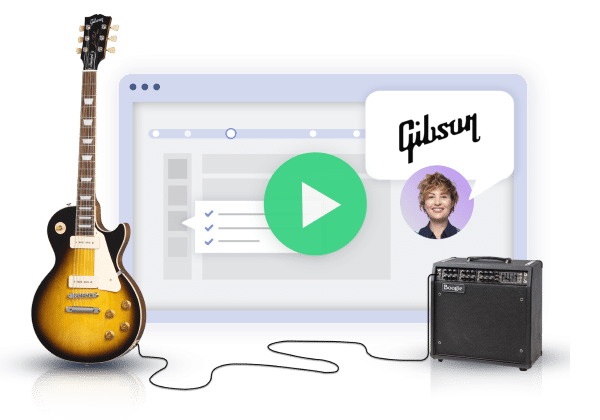Table of Contents
- What Is Marketing Automation?
- What are the Features of Marketing Automation Software?
- What are the Key Benefits of Marketing Automation?
- Key Facts and Statistics About Marketing Automation
- Do You Need Marketing Automation?
- Marketing Automation: The Answer to Your Communication Conundrums
- Supplemental Tools and Resources for Marketing Automation
What is Marketing Automation?
Marketing automation refers to the software that allows you to automate activities and operationalize communications with the goal of managing repetitive and time-consuming tasks.
Marketing automation platforms function as more than simple support tools. They change the role of marketers by streamlining tedious day-to-day tasks so that more time can be spent driving strategy. Marketing departments use automation software to reduce or even eliminate repetitive tasks including:
- Manual email campaign creation
- Coordination of SMS messaging
- Dissemination of social media posts
- Website widget content
- Online advertisements placement
- Data management and analysis
Like most technology, marketing automation is constantly evolving. When leveraged successfully, it helps drive transactions and generate more revenue.
What Does Marketing Automation Do?
Marketing automation is designed to streamline and simplify time-consuming tasks of the modern marketing and sales roles. Automation tools enable you to identify your target audience, design relevant content, and automatically generate tasks based on consumer behavior.
Companies that use marketing automation see more web traffic, more buyers, and spur greater retention and loyalty. Coupled with personalization engines, marketing automation engages prospects and customers through highly relevant content that, in turn, converts them into loyal customers.
By streamlining this process, you’re able to build personalized, one-to-one connections with a seemingly endless number of customers, at scale.
You’re probably wondering if marketing automation is the right choice for your organization. The beauty of marketing automation is that it can help your business maximize efforts that have already proven successful. Attracting new audiences through the use of effective marketing strategies is step one, but if you want to do more to nurture those people so that they become customers, marketing automation is a good bet.
How Does Marketing Automation Work? What are the Features?
Marketing automation streamlines segmentation and targeting processes, provides customized messaging to each customer based on their profile, and efficiently delivers personalized experiences for your customers.
Email Campaign Targeting
Email automation can help you send messages with relevant and personalized content to your target audience at the exact right time.
Ever wondered which portion of your database/contacts your content resonates with the most? With email segmentation features, you can identify the correct audience and send them highly relevant and personalized messages based on particular attributes. Instead of blasting through your email lists, think about which segment of your audience should be receiving which email. Chances are, you’ll see an increase in open and click-through rates.
CRM to Website Integration
In order to get the most out of your marketing automation engine, you should be able to integrate your CRM and website. By combining these platforms, you can easily track customer behavior and evaluate what efforts and campaigns are having the most success. Through an automated platform, you’ll be able to generate truly accurate ROI reports.
Lead Profiling Automation
Generating leads and absorbing information is arguably the biggest goal of your website. When you progressively profile your leads, it allows you to learn valuable new information about each and every prospect or customer.
This feature should require very little work, as those visiting your site are doing all the work by filling out forms and relaying information back to you. You just need a net there to catch all the information they’re offering.
What are the Key Benefits of Marketing Automation?
For retailers, automation means more chances to get in front of the right consumers for higher conversion rates and increased revenue. But how exactly can marketing automation platforms help you do more with less?
Data shows marketers will spend more on automation technology that helps them do through-channel work, real-time communications, resource management, pre-purchase nurturing, and more.
From a retail perspective, let’s take a look at some tangible benefits.
Reduced Cart Abandonment Rate
Abandoned carts continue to haunt retailers. The average abandoned cart rate, as of 2019, actually sits around 78%.
By automatically sending triggered emails to those who left unpurchased items in their cart, marketers can reduce cart abandonment rates. Marketing automation can help determine how long after logout to send reminder emails, and even help generate the most compelling subject lines to ensure the emails are opened.
Increased Email Open Rates
E-commerce brands can increase overall email open rates by utilizing A/B testing across all email components. Automation tools store historical consumer data, which, in turn, increase the optimization of email open rates.
Whether through subject line optimization, or ensuring an email is populated with the right content and sent at just the right time, these solutions inform data-driven decisions and yield business results.
Boosted Revenue Through Up-Sells
Nowadays, it’s become almost standard that emails include a section that showcases “others also bought” or “similar customers looked at.” These recommendation emails can be automated and tailored to individual consumer buying preferences or previous browsing history, which is a powerful personalization component.
Gone are the days of manually breaking down every inch of data. With the right automation in place, you can analyze consumer purchase data while simultaneously sending out up-sell emails that are far more likely to drive conversions.
Automated Loyalty Programs
Automated solutions can register customer loyalty information and send real-time, customized deals and incentives through multiple channels, regardless of whether a shopper is in a brick-and-mortar store, on a website, or even perusing social media. Loyalty programs can also help reduce customer churn, create brand advocates, and grow a true culture of retention.
Triggered Email Offers
At its core, marketing automation is a solution comprised of actions and results. Consumers’ actions trigger these campaigns, which then turn the wheel and create a non-stop circle of engagement between customer and brand.
Email marketing has long been the bread-and-butter of every B2C marketing strategy. But when partnered with the right solution, it becomes easier than ever to reach maximum results and drive greater ROI.
Key Facts About Marketing Automation
The continued growth and evolution of marketing automation has made it a non-negotiable for e-commerce teams. However, there are still some businesses that have yet to fully embrace automation due to misinformation. Let’s explore the facts and data surrounding marketing automation.
Myth: “Marketing automation is only relevant for email.”
Fact: Email marketing is one of the most effective marketing channels as well as one of the easiest operations to automate. However, social media, lead generation, management activities, landing pages, and others can all also be automated to varying degrees. Automation touches and improves almost every overarching metric of your marketing… not just email. Once you realize the benefits that automation provides for other channels (such as quicker and simpler processes and conversion optimization), it’ll become clear how marketing automation can save your business both time and money across numerous channels.
Myth: “Marketing automation is just another form of spam.”
Fact: Often, spam is considered any message that shows up “without warning” in your inbox. The reality is that spam is really based mostly on irrelevancy. If the content you’re sending to your audience doesn’t reach them in a personalized way, it most likely isn’t worth sending at all. Marketing automation allows you to send relevant content and information to your audience based on who they are, their interests, and even how they discovered your business. Automation presents an opportunity to engage with potential customers conversationally while guiding them step-by-step through the customer lifecycle.
Key Marketing Automation Statistics
By 2023, investment in marketing automation technology will nearly double from where it’s at now. Adoption of automation technology is increasing at an absolutely astounding rate.
- 91% of marketing automation users say that it’s “very important” to their overall online marketing efforts (Demand Gen Report, 2018).
- Spending on marketing automation tools is expected to reach $25.1 billion annually by 2023. (Martech Today, 2020)
- 79% of high-performing companies have been using marketing automation for three or more years. (Venture Harbour, 2020)
- Marketing technology now accounts for 29% of total marketing expense budget compared to 21% allocated to advertising. (Gartner, 2019)
- 74% of marketers say that “saving time” is the biggest benefit they see from automation (Demand Gen Report).
- 68% of marketing leaders currently use a marketing automation platform. (Salesforce, 2020)
Related Content: How to Combat 4 Major AI Myths & Misconceptions [Plus Expert Insights]
7 Signs You Need Marketing Automation
Marketing automation has quickly become the go-to remedy for marketing teams looking to take the manual work out of trivial, tedious, and time-consuming marketing tasks. Here are the 7 tell-tale signs that you need marketing automation:
- You experience lengthy sales cycles: Your business has a complicated and/or long sales cycle. It’s a known fact — the longer your sales cycle is, the more touchpoints you’ll need. This becomes especially true once your prospective customers get closer to completing a transaction.
- Your CRM is lacking automation: Your CRM won’t automate nearly as many of the tasks you need it to, and managing your customer base is becoming more difficult as a result. Having a good CRM in place is great for task management and sales forecasting. But if you’re searching for a solution that offers superior segmentation capabilities, as well as an intuitive way to identify and reach out to customers, then marketing automation is the best option.
- Your marketing & sales teams are siloed: It seems like your marketing and sales teams are always at each other’s throats. It’s not uncommon that sales and marketing teams operate on separate wavelengths, especially when customer acquisition and revenue attribution come into play. An automation solution can help ease tension and bridge the gap between teams.
- You need more customer data: You wish you could segment and target both existing and potential customers, but don’t have the right data to do so. You’re going to need more than just a first and last name and email address to properly comb your way through the customer data. An automation tool provides you with data such as location information, job titles, and behavioral insights, and makes that data more actionable.
- You lack ROI insights: You can’t make heads or tails out of your campaign ROI. Pulling revenue numbers might not be an issue, but when you’re trying to determine which campaigns have the most significant ROI, you have no idea where to look. Marketing automation provides valuable insight into your marketing ROI.
- You are struggling to gauge consumer interest: Prioritizing customer interest based on the likelihood of converting can be challenging. It can seem almost impossible at times to tell just how interested potential customers are in your brand, or if they’re even a good fit for the product or service you’re selling. By efficiently automating your strategy, you can gain insights into your customer base and determine in advance how the results might look.
- You are struggling to reach your target audience: Your content is good, but your method of distribution is less than stellar. Marketing automation is designed to help target communications and create forms or landing pages in order to better reach your target audience. Without automation, it can be extremely difficult to see the results you would like from your content efforts.
When Should You Invest in Marketing Automation?
Sooner rather than later.
It’s becoming a staple of every marketing strategy and the benefits are universally positive. Some simple questions to ask yourself: Would my marketing efforts be more effective with the assistance of automation? Would I have more time to focus on strategy? Answering these questions can help you determine when it’s time to invest.
Once it’s time to invest in marketing automation, it is important to recognize that marketing automation won’t do the legwork for you. Rather, it can help scale and amplify your already successful efforts.
Begin by getting everybody on the same page and identifying what your goals are. A business that is working toward the same objective will always be more effective than one that is divided. Marketing automation is not restrictive. It should be able to grow and assimilate with your current business in a unique but seamless way.
How Should You Choose a Marketing Automation Tool?
While choosing a marketing automation tool isn’t an easy task, you may be ready to take the next steps towards investing in a marketing automation tool. Once you have digested the information above, write down a list of your must-haves, wants, and hard-nos.
Marketing Automation: The Answer to Your Communication Conundrums
For B2C marketers searching for a way to organize, optimize, and act on all of their customer data, marketing automation solutions offer an organization the ability to revolutionize how it operates.
With a continuous cycle of testing, refinement, and feedback, marketing automation ensures that workflows are always changing and growing for maximum impact and effectiveness. These kinds of tools let you take a giant leap forward in terms of efficiency, productivity, and revenue generation while your team simultaneously gets to concentrate on strategy, creativity, and content.
And that’s the true beauty and value of technology today.
➤ Looking to incorporate a marketing automation solution into your current strategy? Learn how Emarsys can help.
Additional Tools and Resources
Here’s a short list of the best educational material related to marketing automation.
- Building vs. Buying Marketing Automation Software: Pros and Cons [Infographic]
- How Runtastic Uses Marketing Automation to Personalize 8M+ App-Based Messages per Month
- How Can Marketing Automation Make Your Business Smarter – and Richer?
- Data, Automation, & Artificial Intelligence: Magnus Unemyr [Podcast]
- Is Marketing Automation Truly Serving Your Needs – Or Are You Serving it: Matt Heinz [Podcast] #17
- Breaking Down AI: How to Work Side-by-Side with Data, Algorithms, Automation Systems [Laszlo Revolution]














